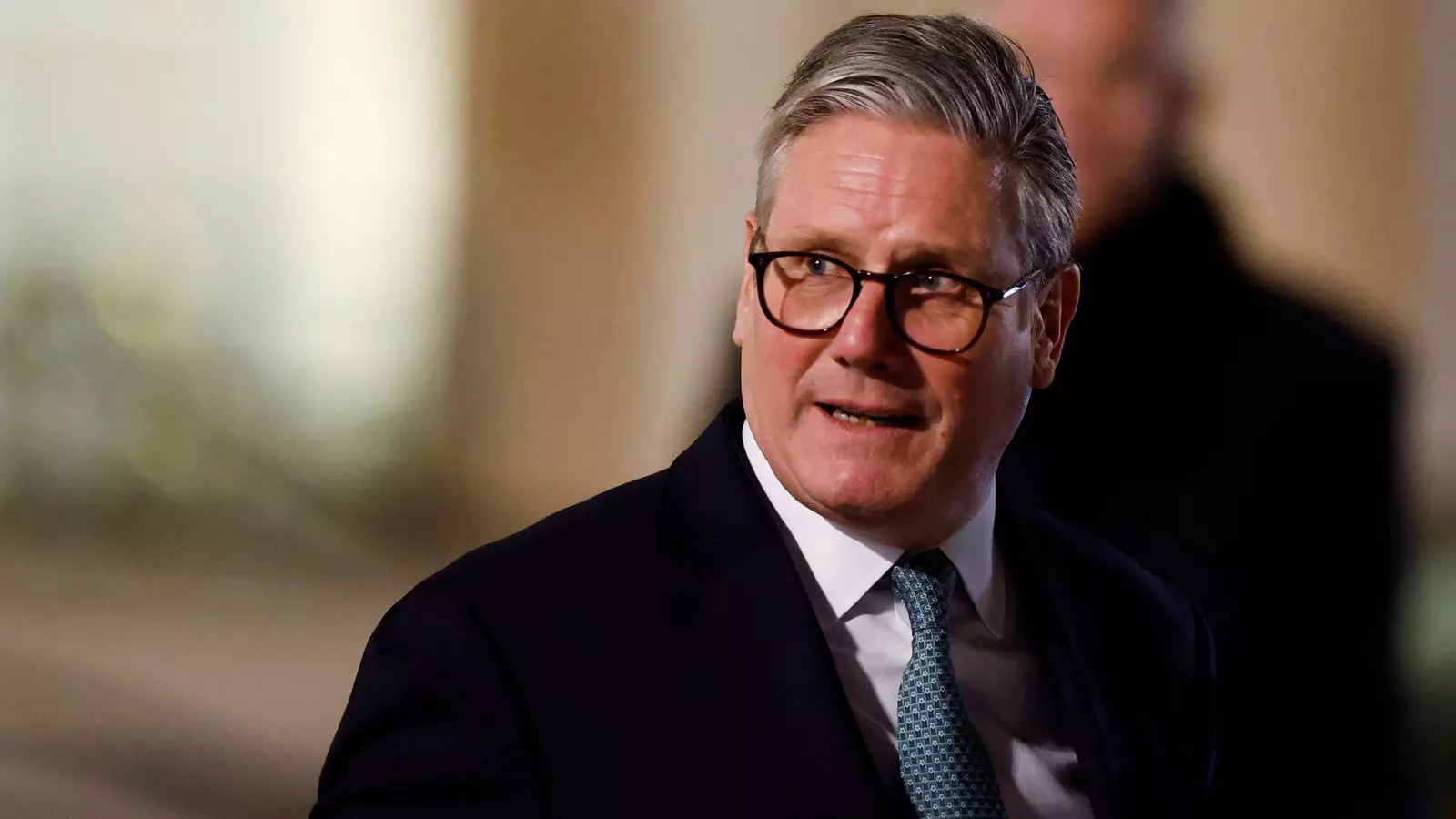As global geopolitical tensions mount, particularly in Eastern Europe, the impending talks between UK Prime Minister Sir Keir Starmer and US President Donald Trump take on critical significance. The backdrop is painted with a vulnerable Ukraine, embroiled in a conflict that has not only threatened its sovereignty but also the stability of the broader European landscape. Starmer’s message is unequivocal: true peace can only be achieved with strength and proper security guarantees, highlighting the complexities surrounding the ongoing war.
Recently, a moment of tension surfaced when Trump incited controversy by labeling Ukraine’s courageous leader, President Volodymyr Zelenskyy, as a “dictator.” These remarks, alongside Trump’s assertion that key European leaders such as Starmer and French President Emmanuel Macron had “done nothing” to facilitate peace, indicate a pressing need for robust diplomatic dialogues that genuinely include Ukrainian perspectives in ceasefire discussions.
Sir Keir Starmer has vehemently asserted that any pathway to peace disregarding Ukrainian agency would lead to disastrous outcomes—not just for Ukraine, but for the global order. His insistence that any peace talks must involve Ukraine reflects a broader understanding of what true sovereignty entails. This narrative emphasizes that peace negotiations devoid of Ukrainian participation could result in unresolved tensions, leaving the nation susceptible to renewed aggression from Russia.
Starmer argues that secure peace requires tangible assurances—primarily from the United States, which has been a pivotal player in this conflict. A commitment to providing air defense systems and robust military support to NATO allies in Europe reveals the strategic importance of ensuring a lasting stability for Ukraine. Without these guarantees, the potential for a “bad peace deal,” one that fails to prevent further incursions by Putin, becomes all too real.
Concurrently, the discussions taking place between US and Russian officials in Saudi Arabia, which have notably excluded Ukrainian representatives, emphasize a concerning trend of sidelining the very nation at the heart of the conflict. As Ian Hislop suggests, treating Ukraine as a mere collateral in diplomatic dialogues undermines its national interests and security. The absence of Ukrainian voices from pivotal discussions demonstrates a misguided approach.
UK Defence Secretary John Healey’s remarks underline an important principle: negotiations about Ukraine must legitimately include Ukrainians. A failure to recognize this would not only jeopardize any potential agreements but would also create an atmosphere of distrust, potentially igniting further conflict.
On the international stage, the pressure mounts for the UK to reassess its defense commitments as part of NATO. With Sir Keir Starmer indicating a willingness to raise UK defense spending to 2.5% of its GDP, the urgency behind this initiative becomes clear. This increase aims to address mounting security concerns and respond to calls by US officials for Europe to enhance its contribution to collective defense.
Starmer’s position also hints at the UK’s readiness to contribute troops to any European force in Ukraine that may arise following a peace deal. This willingness, articulated with a tempered emphasis of not taking it lightly, signals a significant shift in military collaborations and strategies, recognizing the importance of active engagement in regional security matters.
The overarching narrative in these developments is the shared responsibility among Western nations, particularly in Europe, to ensure a stable and democratic Ukraine. With the third anniversary of Russia’s invasion approaching, increased sanctions on Russia, as announced by Foreign Secretary David Lammy, reflect an ongoing commitment to holding aggressors accountable while stabilizing the region.
Sir Keir Starmer’s upcoming discussions with President Trump are set against a landscape rich with challenges and responsibilities. The UK’s position not only involves immediate responses to the war but also a robust strategic reassessment of its role within NATO and its commitments toward Ukraine. The need for a cohesive, well-funded, and united stance is imperative if Europe aims to secure long-lasting peace. Without proactive measures and genuine inclusion of all stakeholders, the prospects for a stable future in Ukraine remain precariously uncertain.

Leave a Reply